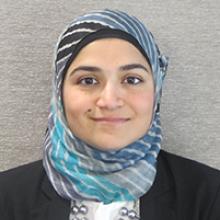Health Equity for Afghan Refugees (HEAR): Generating and Using Evidence to Align MultiSector Organizations with the Priorities of Afghan Refugees
In August 2021, more than 70,000 Afghan citizens were evacuated to the United States. Refugee resettlement can be a challenging process for people traumatized by decades of war and socioeconomic instability. Many federal, state, and county government agencies, resettlement organizations, and community-based organizations—collectively, “multisector organizations (MSOs)”—work to address housing, employment, social services, and healthcare needs. MSOs may not routinely align their efforts, and the process of collaborating to address Afghan refugees’ needs could benefit from incorporating the voices of refugees themselves. Ultimately, the health and well-being of this large population will depend on how effectively the MSOs supporting them can work together to understand and address the priorities of Afghan refugees.
- Landscape analysis identifying needs and priorities for Afghan refugees and MSOs in the DMV area;
- Ethnographic study documenting the lived experiences of five Afghan refugees over 18 months;
- Focus groups with MSO representatives serving Afghan refugees across health, human services, education, legal, and employment sectors; and
- HEAR learning network of MSOs with learning and development events to build capacity and support collaborative action.
Through the HEAR project, AIR, along with its partners, Church World Services (CWS) and the Muslim Community Center Medical Clinic (MCC-Medical Clinic), will use innovative qualitative research and capacity-building approaches to facilitate collaboration among MSOs toward advancing health equity for Afghan refugees.
We are conducting qualitative research to understand the resettlement landscape, challenges and opportunities for both Afghan refugees, and the organizations helping to address their immediate and longer-term needs. The insights from this research will be shared with the diverse organizations supporting refugee resettlement and integration, to help inform their work, strengthen collaboration amongst them, and communicate the priorities and concerns of the Afghan refugees they serve. We will also create learning and development opportunities for organizations supporting Afghan refugees across healthcare, public health, federal and state government, and human services, to help incorporate principles and practices of health equity into their work.

